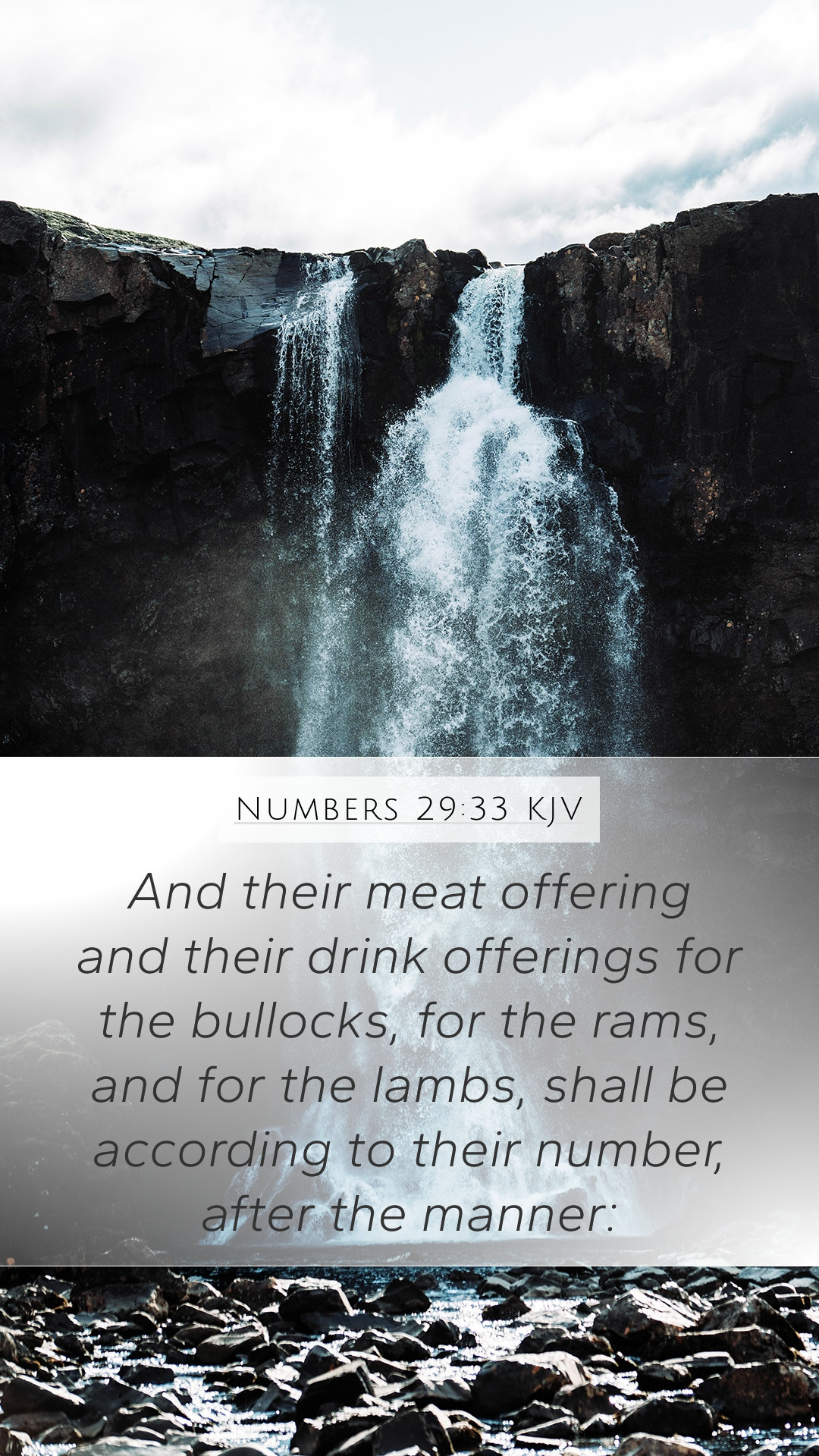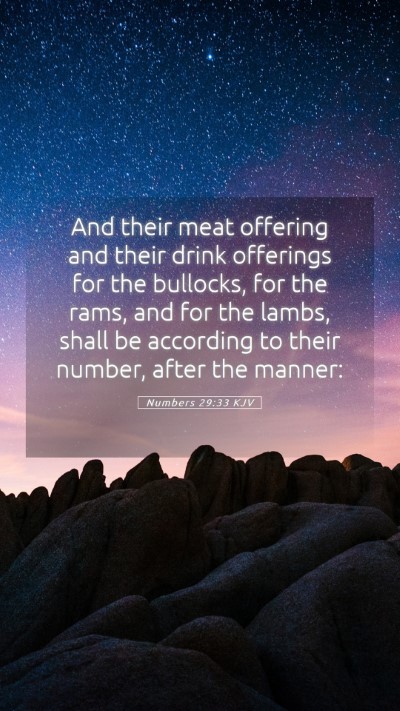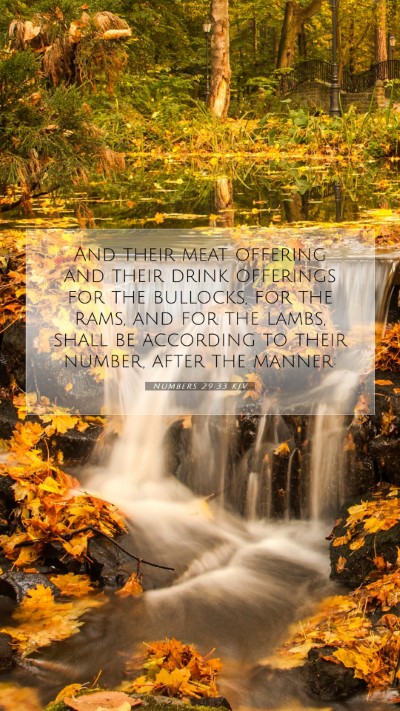Understanding Numbers 29:33
Numbers 29:33 states: "And one of the burnt offerings shall be a bullock, the other a ram, and the fourth a lamb." This verse is part of the instructions given to the Israelites regarding the sacrificial system during their worship practices.
Context and Significance: The Book of Numbers provides detailed accounts of the laws and rituals that the Israelites were to follow after their exodus from Egypt. Chapter 29 focuses on the offerings during the Feast of Tabernacles. This period was significant as it commemorated God’s provision and the Israelites’ journey in the wilderness. The offerings were expressions of gratitude and dedication to God, symbolizing the people's acknowledgment of His sovereignty and grace.
Bible Verse Meanings and Interpretations
This verse highlights specific types of burnt offerings — a bullock, a ram, and a lamb. Each of these animals carries symbolic meanings and reflects different aspects of worship.
- Bullock: Often symbolizes strength and servitude. It was typically used in significant sacrificial contexts.
- Ram: Represents atonement and is frequently associated with peace and sacrifice. In the context, it denotes commitment to God.
- Lamb: Symbolizes innocence and purity. It is a reminder of the sacrificial system that ultimately points to Christ, the Lamb of God.
Each type of offering plays a unique role in the atonement process, emphasizing the importance of diverse expressions of worship. These sacrifices were essential in restoring the relationship between God and humanity and maintaining communal faith during the festivals.
Bible Verse Commentary
According to Matthew Henry's Commentary, the offerings described in this verse were crucial for God’s people, reflecting both the seriousness of worship and the joy of their covenant relationship with Him. The act of bringing these animals for sacrifice signifies the commitment of the Israelites to uphold their side of the covenant with God.
Albert Barnes further explains that these offerings also exemplify the fullness of sacrifice required for various occasions in Israelite life, highlighting God’s expectations for worship. Such detailed instructions reveal God's desire for order and reverence in worship practices.
Moreover, Adam Clarke emphasizes the importance of recognizing the symbolism behind each animal designated for sacrifice, pointing to the ultimate sacrifice of Jesus Christ as the fulfillment of these offerings. Clarke notes that the meticulous nature of these rituals in the Old Testament underscores the depth of God's holiness and the seriousness of sin.
Understanding Scripture Through Context
To fully appreciate Numbers 29:33, one must explore the historical and cultural context of the ancient Israelites. The sacrificial system was integral to their identity and relationship with God. It served as a tangible means of expressing their devotion and dependence on God for both spiritual and physical sustenance.
The verse reflects the transition of worship in the Old Testament, where physical sacrifices were central to the faith until the coming of Christ, who fulfilled the law and established a new covenant through His sacrifice.
Applicability to Modern Devotion
Though the specific practices of burnt offerings do not apply to modern Christian worship, the principle of sacrifice remains relevant. Today, believers are called to present themselves as living sacrifices (Romans 12:1), dedicating their lives to God in service and worship.
Understanding the heart of this verse encourages contemporary believers to reflect on what it means to offer their time, resources, and talents in ways that honor God. Sacrifice may manifest in acts of service, generosity, and love towards others, echoing the spirit of the burnt offerings prescribed in the Old Testament.
Bible Study Insights and Resources
For those studying the Bible, this verse can serve as a starting point for deeper exploration into:
- The significance of sacrificial systems in both the Old and New Testaments.
- The typology of Christ as the ultimate sacrifice predicted by the law.
- The concept of covenant in Scripture and how it applies to today's believers.
Utilizing various bible study tools and bible study resources can enhance your understanding of such verses. Engaging in bible study groups or online bible study courses can also provide valuable insights into the interpretations and applications of these scriptures.
Cross References
Related Bible verses that illuminate the themes found in Numbers 29:33 include:
- Hebrews 9:22: "Without the shedding of blood, there is no remission."
- Romans 12:1: "Present your bodies a living sacrifice, holy and acceptable to God."
- Exodus 12:5: "Your lamb shall be without blemish, a male of the first year."
Conclusion
Numbers 29:33 serves as a powerful reminder of the importance of sacrifice in the worship of God. The burnt offerings specified in this verse represent more than mere rituals; they are a testament to God's desire for a relationship with His people, centered around gratitude, atonement, and commitment.


